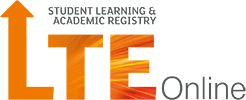There are several different theories of reflection in education. For example, the Kolb Experiential Learning Cycle and the Gibbs Reflective Cycle.
The Kolb Cycle involves four steps; concrete experience – doing or having the experience, reflective observation – reflecting on the experience, abstract conceptualisation – learning from the experience and active experimentation – trying out what has been learned.
The Gibbs Cycle however has six steps; description of what happened, the feelings during the event, evaluating what was good and bad about the experience, analysis of what else can be made of the situation, a conclusion on what else could have been done and finally an action plan of you would change the situation if it arose again.
These theories of reflection are great to use within an assessment piece or a group working session, as it is useful to understand the way your students are thinking throughout a project. There are a number of different tools that you can use to encourage reflection within your students.
Journals
A journal is quite similar to a blog except the entries that are made are completely private to a single student and their tutors. This can be another useful way for students to keep a log of their project and reflect on what they have learned. Students who are on placement often find that journals are a great way to stay in touch with their placement supervisor to update them on how the placement is going.
The following guide will advise you as well as your students on how journals work and how to use them:
https://eatsupport.tees.ac.uk/staff/knowledgebase/bbu-setting-up-and-configuring-journals/
Discussion Boards
Discussion boards are a good way for carrying out group work in an online setting. It is a way for students to reflect and collaborate on a task whilst a tutor supervises the conversation. It is also a good way for students to ask questions in a setting where other students can see, as it may be reassuring for other students to know that someone else may be having the same problems. Due to the current mode of Hybrid Learning, some students can feel isolated and so having a discussion board can help students to connect with their other learners.
These two help guides will provide information on how to set up a discussion board and some good practice tips for using them:
https://eatsupport.tees.ac.uk/staff/knowledgebase/good-practice-blackboard-discussion-boards/
Mahara
Mahara is another great way for students to reflect. It is an e-portfolio system that students can use to reflect on their academic journey. It’s not associated with a specific module, but stays with students throughtout their time at Teesside.
This page looks more closely at the help associated with Mahara:
https://eatsupport.tees.ac.uk/staff/knowledgebase/getting-started-with-mahara/
If you require any further support, please contact eLearning@tees.ac.uk
